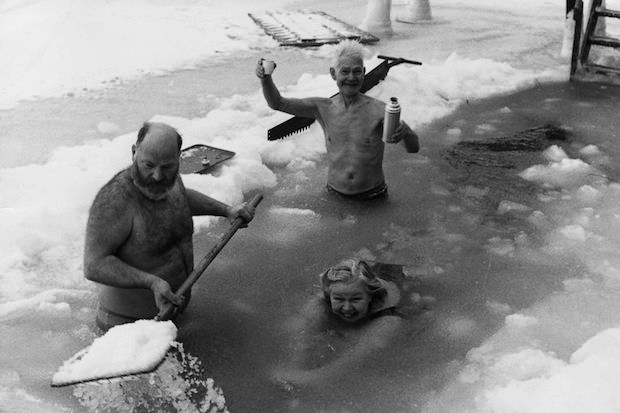Two headlines on successive days speak volumes about the scaremongering which is endemic in the way in which learned bodies disseminate information on climate science. Yesterday, the Royal Society published a report, Resilience to Extreme Weather, predicting that by 2090 four billion people around the world each year will be subjected to heatwave events, with dire consequences for the health of older people.
This morning, the Office of National Statistics published its latest figures on ‘excess winter deaths’. They show that last winter there were 18,200 more deaths between December and February than would be expected during the three summer months. Dramatic though this sounds, it is the lowest recorded in 65 years. During the previous winter, 2012-13, there were 31,280 winter deaths. There is a very good reason why excess winter deaths fell so sharply in the space of a year. Last winter was particularly mild: December and January were 2° Celsius above the long-term average. The winter 2012/13, by contrast, had prolonged periods of cold. There is a long term correlation between cold winters and excess winter deaths.
Cold kills the elderly and infirm, as indeed does heat. But only the latter of these facts is acknowledged in the Royal Society report. It is the same with IPCC reports and others. We hear endlessly about how we will suffer more heatwaves, without any recognition that warmer temperatures would lead to fewer people dying of cold. Yet the latter would be a far bigger benefit than the former a disbenefit. That statisticians in Britain measure ‘excess winter deaths’ rather than ‘excess summer deaths’ is an indication that in a temperate climate, at least, cold is a far bigger killer than heat.
The tendency for climate change reports to dwell on the negative without acknowledging the positive was noted by the review into the IPCC carried out by the Netherlands Environment Assessment Agency in 2010.
That criticised how the summary of the IPCC report picked out numerous problems which would be caused by rising temperatures –such as water shortages, declining crop yields in places – without bothering to mention how the science also indicated in other places water availability and crop yields would increase.
It seems that the Royal Society has learned nothing since then. Without a balanced critique of the evidence a climate change report is just propaganda.







Comments